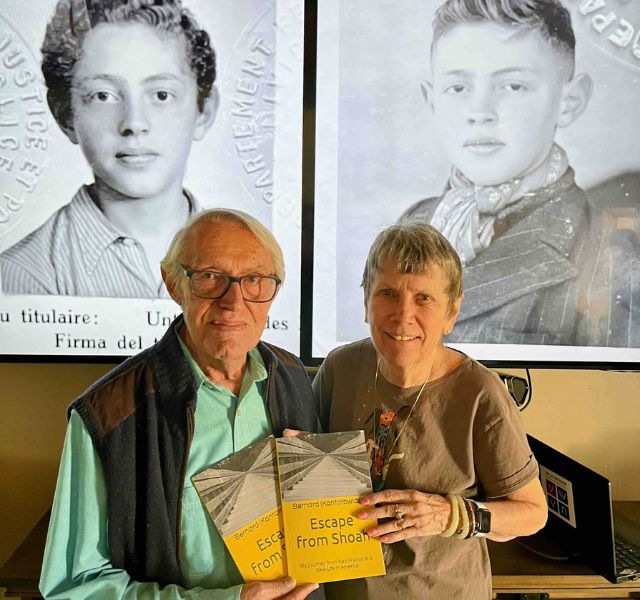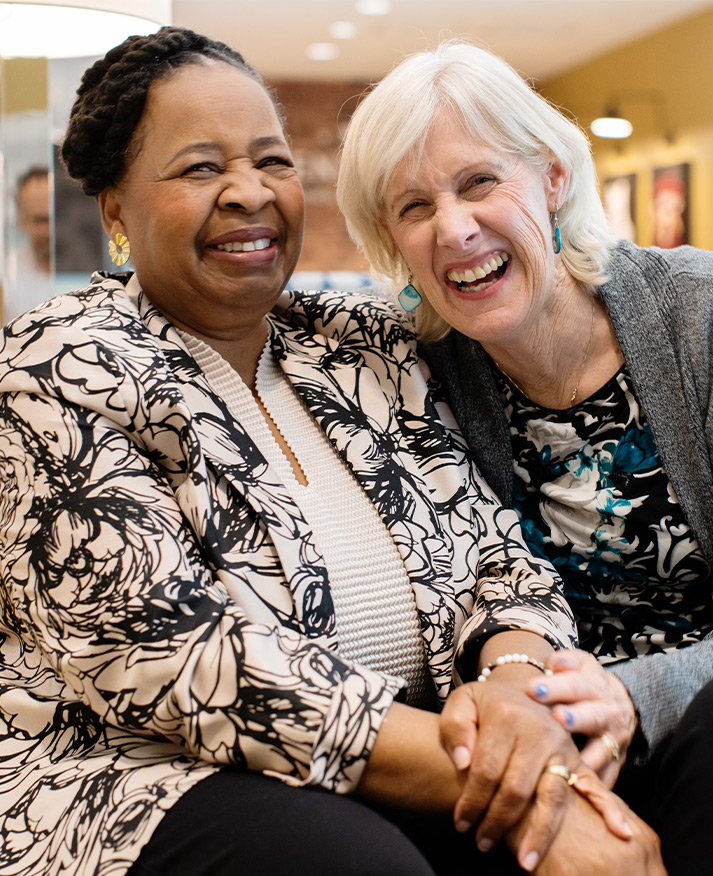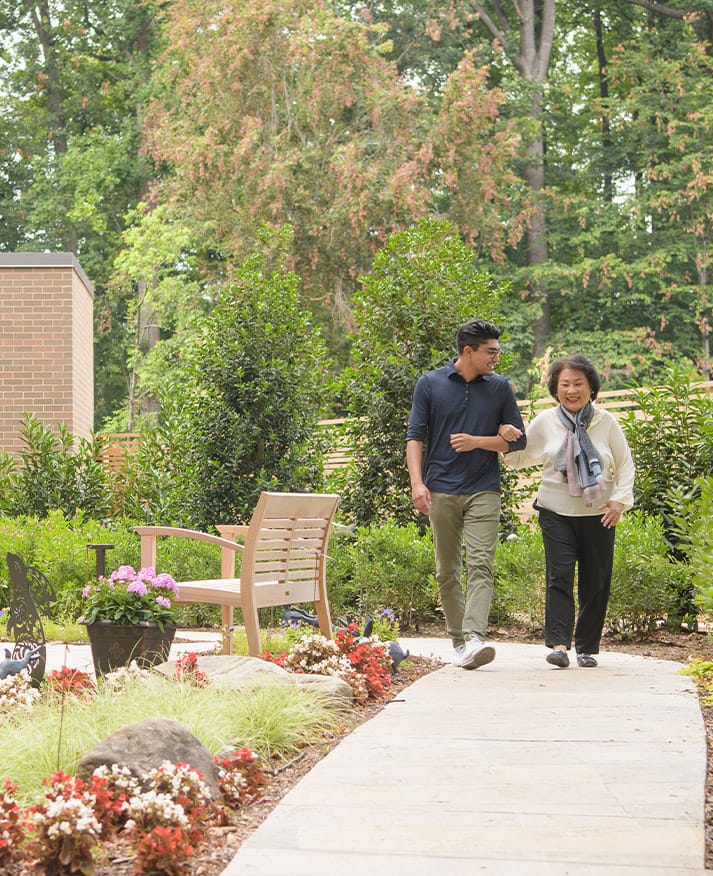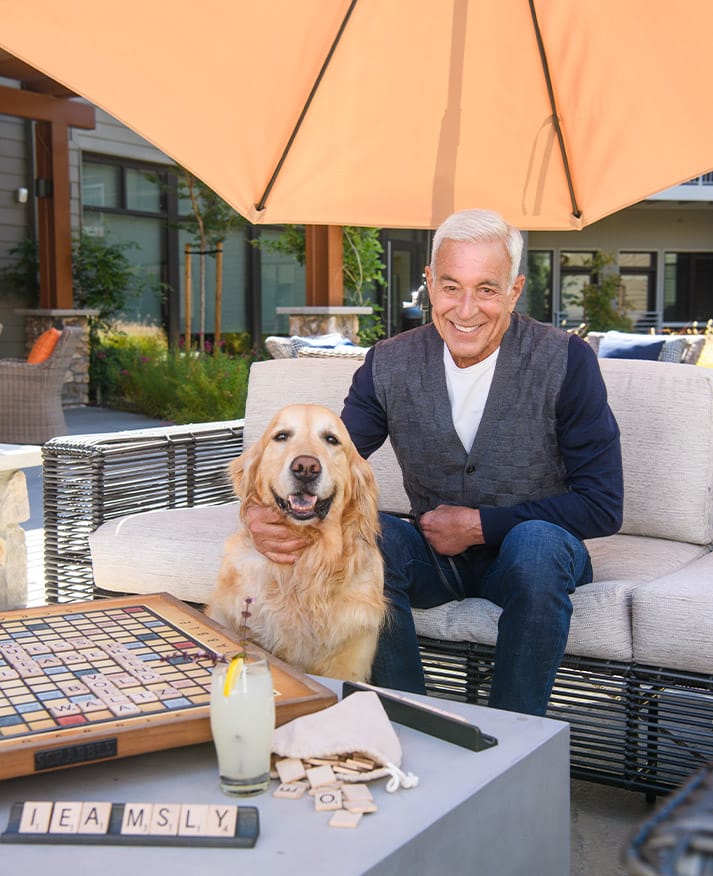Bernie Salfas’ Story: Surviving Among the Hidden Children
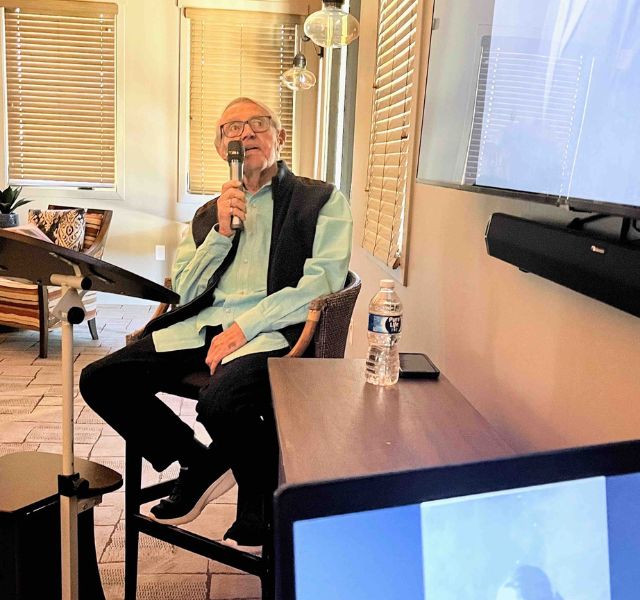
Read the full story of Bernie’s life in his book, Escape from Shoah.
If you meet Bernie Salfas today, you’d likely call him bright, personable, and contented. He’s all the more impressive when you learn about the tragic, harrowing, and ultimately inspiring story he tells in his autobiographic Escape from Shoah. Nearly 80 years after his story's beginning, Bernie was able to rise above the pain and describe the journey he and his two brothers endured, hiding from the Nazis during World War II.
"I was born in Poland in 1933,” he says, “but things were getting bad for Jews there, so we moved to Paris when I was one. Things gradually got worse there, too. The Nazis wanted especially to erase all Jewish children.”
Of the six million Jews killed in WWII, 1.5 million were children. Fortunately, many Jewish agencies and the French resistance did what they could to hide the children and protect them. That’s how Bernie and his two brothers wound up separated from their parents. The boys were hidden and frequently moved from homes, farmhouses, and even some of the 15 castles around France that were used as hiding places.
In 1943, the boys were smuggled with a dozen other Jewish children into neutral Switzerland. They were led by members of an underground group dedicated to saving Jewish children.
“We were three rambunctious brothers who had to keep quiet sneaking through the woods. My older brother carried our six-year-old brother on his shoulders,” says Bernie. “There were barbed wire fences to keep people out. We had to find the right opening, but we made it to Switzerland.”
Imagine the anxiety of all those children and their leaders as they waited several days in a Spartan camp to hear if they would be granted refugee status. When the Swiss government accepted them, one part of their nightmare ended.
Bernie and his brothers spent the last two years of the war at an orphanage near Vevey, Switzerland. The setting was beautiful and they were treated kindly. During that time, however, he learned that his mother died in Auschwitz concentration camp, then his father died. Bernie could not even cry.
“This news seemed unreal,” Bernie wrote, “especially since I had developed what I call ‘emotional anesthesia.’ I simply did not believe it and built a wall around bad news.”
One person can make a difference in a child’s life, though. Bernie became close with Else Wagli, who worked with the children. “She was a surrogate mother for me,” he says. “I could go to her with all my problems.”
The Swiss were respectful of the children’s Jewish heritage, and Bernie even celebrated his bar mitzvah there. By some estimates, 10,000 Jewish children found safety in Switzerland. That’s where Bernie and his brother were when the war ended and they faced the next big hurdle.
Where could three orphans go? They no longer had a home or family in Paris. A refugee organization located an aunt in New York who was willing to take them. Then she persuaded a wealthy realtor to put up the $100,000 bond to bring them to America, assuring they wouldn’t need public resources. That aunt and uncle adopted all three boys and they started their life in America.
Which brings us back to the contented Bernie you’d meet today. Read his fascinating book for the details on how he used his skill in French, chemistry, and trade to build a successful international career. He’s a founding member of The Hacienda at the Canyon, and enjoys his life there. His much-loved wife of 67 years, Eileen, passed away a few years ago. Bernie has started a new life now with fellow resident Joanne Conrad. She helped him with his book and shares his passion for travel. On a trip to Tahiti, they took civil union vows in English, French, and Tahitian. Joanne says that Bernie has no time to be bitter over things that happened long ago. He agrees.
"Kind people helped us all along the way,” Bernie says. “Even in the scariest of times, there is always hope. I’m a survivor. I look forward to the future.”
